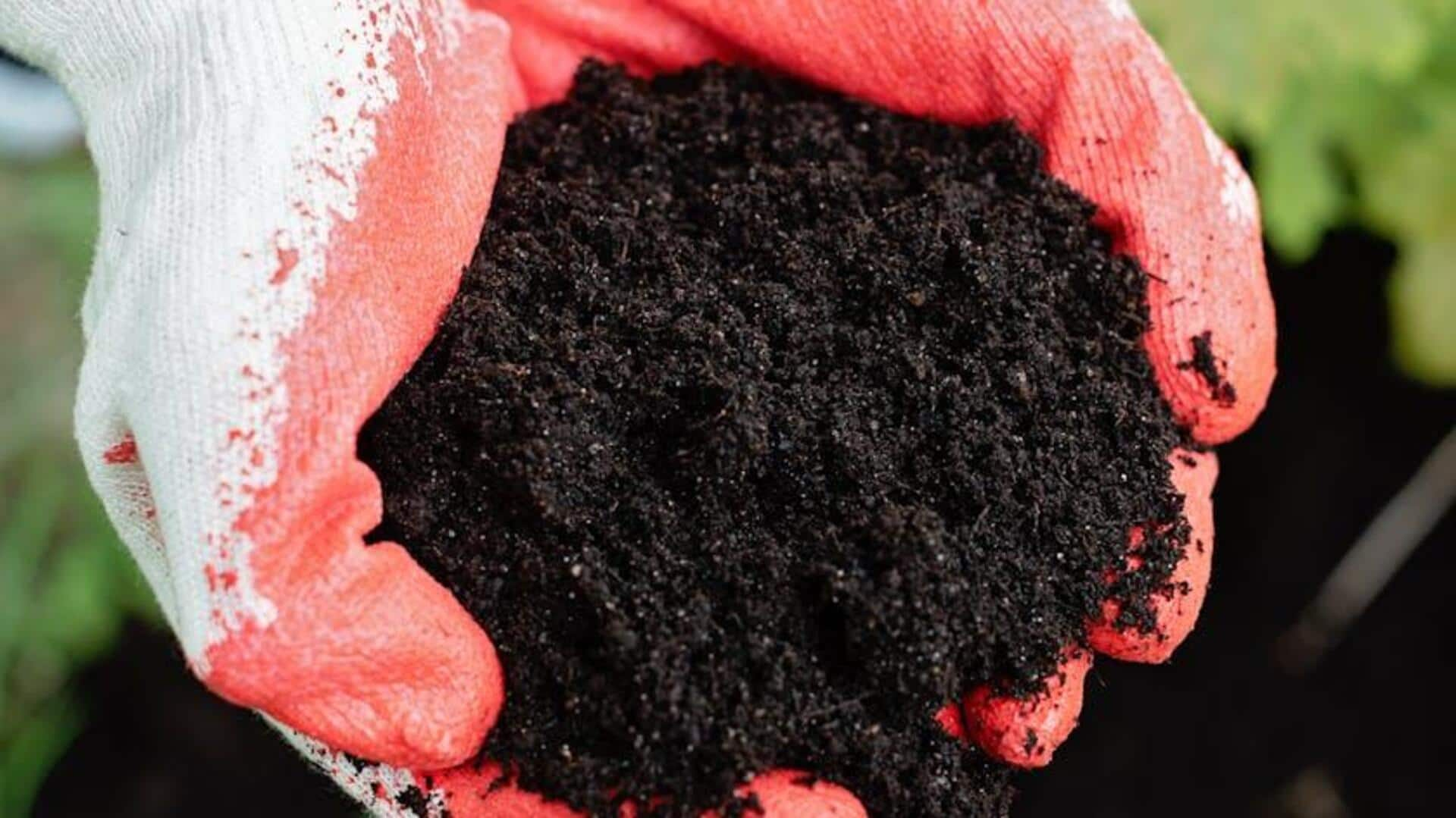
Make garden compost out of kitchen waste: Here's how
What's the story
Composting is a great way to recycle organic waste and enrich your garden soil. By converting kitchen scraps and yard waste into nutrient-rich compost, you can contribute less to the landfill and promote plant growth. This not only helps the environment but also saves you from spending money on fertilizers. Here are some handy tips to help you make your own compost at home, turning everyday waste into precious garden gold.
Tip 1
Choose the right compost bin
Selecting a suitable compost bin is essential for efficient composting. You can either go for a simple open pile or invest in a commercial bin (depending on your space and needs). Make sure the bin has good ventilation for air circulation, which speeds up the decomposition process. A lid helps retain moisture and keeps pests away. Consider your household waste size while choosing the bin's capacity.
Tip 2
Balance green and brown materials
A successful compost pile needs an appropriate balance of green and brown materials. Green materials, such as fruit peels, vegetable scraps, and grass clippings, provide nitrogen. Brown materials such as dried leaves, straw, and shredded paper provide carbon. Aim for a ratio of about three parts brown to one part green material to keep an ideal balance for efficient decomposition.
Tip 3
Maintain moisture levels
Moisture plays a key role in microbial activity in your compost pile. The contents should be as damp as a wrung-out sponge—not too dry or too wet. If it's too dry, add water or more green materials; too wet, incorporate additional brown materials like straw or shredded paper to soak up excess moisture.
Tip 4
Turn your compost regularly
Turning your compost regularly introduces oxygen that helps break down organic matter quicker. Use a pitchfork or shovel to mix the pile every few weeks or whenever it starts compacting down too much. This aeration process helps speed up decomposition while preventing unpleasant odors from developing due to anaerobic conditions.
Tip 5
Avoid common composting mistakes
Avoid adding dairy or oily foods to your compost as they attract pests, cause foul odors, etc. Stick with plant-based scraps. Also, exclude diseased plants to prevent spreading pathogens into your garden soil. This controlled setup at home ensures better, consistent results, benefiting your garden long-term without external interventions.